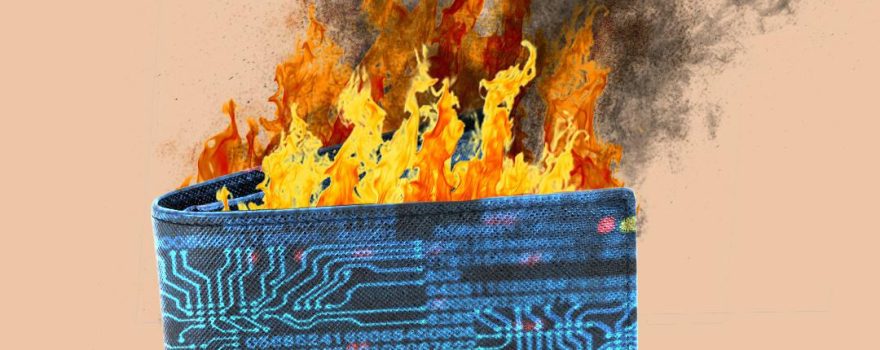
In 2017, cryptocurrency exchange Binance created the first new type of blockchain-based digital asset: the BNB coin, designed to encourage customer behavior such as trading or referring friends to its own platform. “A model for building a scalable and efficient cryptocurrency business,” CoinDesk editor Pete Rizzo said in 2019 after Binance moved the coin to its own blockchain. “Incredible brilliance.
The one incredible thing about the totality of crypto inventions known as exchange-traded tokens like BNB today is that they have swelled to tens of billions of dollars and largely become the foundation on which fast-growing digital asset markets rest.
The weakest link in former billionaire Sam Bankman-Fried’s crypto empire was his own exchange token FTX, which traded under the symbol FTT. According to Reuters, Bankman-Fried lent his trading company Alameda billions of dollars in FTX customer funds backed by these FTT tokens, which were essentially invented as a way to offer trading discounts and other perks.
“The way FTT works,” Bankman-Fried told Forbes in an August 2022 interview, “it’s not that you get free FTT for what you do. You’d think you’re getting free shit for having an FTT. So, there’s a bunch of fools out there.”
At its peak in 2021, FTT had a market value of $9.6 billion, but unlike common stock, which represents legal ownership of a corporation’s assets, FTT does not represent an ownership interest in FTX. If FTT had any intrinsic value, it was in the form of discounts that FTX customers using these tokens could receive when trading on the exchange – up to 60% for active traders. You could think of these exchange tokens as loyalty points or incentive points that you could get as a regular Starbucks or UnitedMiles customer by flying that airline. They have value, but it is unlikely that a bank would let you use them as collateral if you wanted to buy a house.
But in the highly speculative and often bizarre world of digital assets, these loyalty tokens are traded on numerous cryptocurrency exchanges just like stocks on the New York Stock Exchange, and FTX founder Sam Bankman-Fried has reportedly used them as collateral for loans to his company. made. Until a week ago, FTT was trading at $26 and had a market capitalization of $3.5 billion. But after rival Bankman-Fried Changpeng Zhao, the billionaire founder of Binance, tweeted that he planned to sell FTT for more than $500 million, it triggered the crypto equivalent of a bank run. Today, FTT is selling for $2.70, and given FTX’s recent bankruptcy filing, it’s probably heading toward zero.
In fact, so-called exchange tokens are an important backbone of the cryptocurrency exchange ecosystem because they are effective at building customer loyalty, especially when token prices rise. Almost all such tokens offer exchange privileges to their holders, such as discounts on trading fees, preferential margin credit terms, increased fees for staking (lending), and Visa exchange cards with cashback. Exchange tokens are also awarded to customers who refer new traders to the platform, in a system similar to tiered marketing organizations such as Amway. Exchange tokens serve as fuel for self-fulfilling cryptocurrency bubbles.
Binance, the largest cryptocurrency exchange in the world, has its own BNB token, which itself has a market capitalization of $45.9 billion, although it does not represent any capital in Changpeng Zhao’s company and is not registered as a security in the United States. SEC.
Anyone who opens an account on Binance and starts trading can buy or earn these BNB tokens, which offer 25% off spot and margin transaction fees and 10% off futures. If you invite your friends, you can receive a commission of up to 40% each time they make a transaction on Binance. In addition, since Binance has created its own blockchain which mints BNB coins, you can use BNB to pay for goods and services, book flights and hotels on sites such as Travala, participate in exclusive token sales, and even earn free tokens by completing surveys and tasks. You can also use BNB by betting, earn flexible interest income by investing in projects based on the BNB network, and apply for cryptocurrencies. Notably, these digital assets are also required for anyone who wants to use Binance’s decentralized exchange (DEX), which theoretically cannot be shut down by U.S. regulators.

 Get in Touch
Get in Touch 


